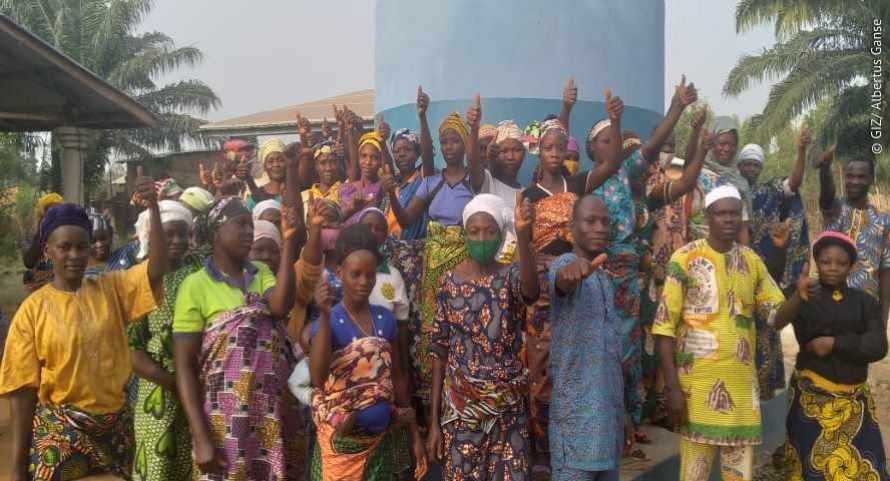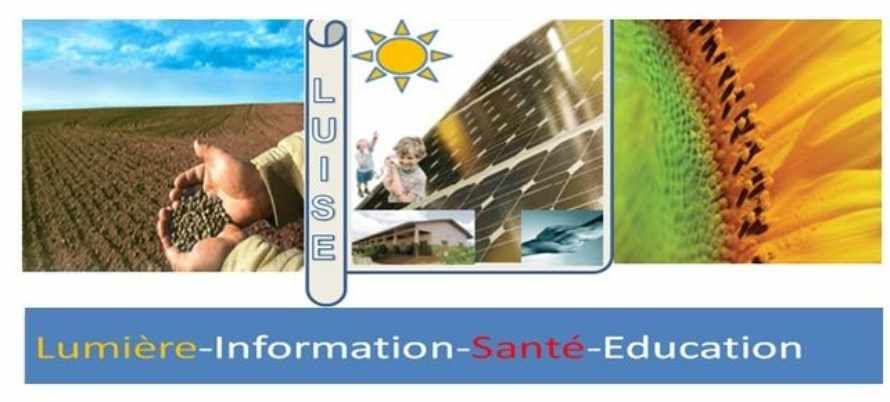Solar system ensures light, water and productivity

The challenge
The approximately 3.400 inhabitants of Amouloko – a village located about 50 kilometres northeast of Cotonou in Benin – live almost exclusively from the cultivation of maize, cassava and palm oil, and other agricultural commodities. However, none have access to electricity. Homes are lit by candles and oil lanterns, and women cook using the heat from burning wood. Schools also lack access to electricity to light their classrooms, nor can health centers refrigerate important vaccines or farmers maintain their agricultural products that require a cold chain. The nearest power line is six kilometres away, and villagers cannot afford the connection costs.
The goal
In light of the various challenges, the Amouloko community contacted the Beninese non-governmental organization LU.I.S.E (Light, Information, Health, Education). The organization plans to alleviate energy poverty of nearly 1,800 residents in Amouloko with the help of solar energy. The electrification of a community building, local marketplace and school will, among other things, facilitate access to local education. In addition, the electricity is to be used for productive measures such as the operation of water pumps or for cooling and processing agricultural products. The latter should enable residents to earn more and reduce poverty that is widespread in Amouloko.
Our partners
LU.I.S.E was founded in 2011 with the aim to electrify rural regions with the help of decentralised energy solutions and to ensure the long-term operation of these systems. Since its foundation, the NGO has carried out various projects in this field for different international organisations.
The approach
The project follows a participatory approach. During its first phase, LU.I.S.E consulted with Amouloko residents, women’s groups and authorities in round tables to decide on the design of the project. In Phase 2, a plot of land will be provided for the project on which a structure for the solar electrification system will be constructed. This building will also be used to store community equipment, including a grain mill and a palm oil press to be purchased by the community, as well as vaccines to be stored in a refrigerator, and will include a small sales room that will be set up for residents to charge their mobile phones. An external service provider will be installing the solar energy system as part of the building, laying light lines in the school and to the marketplace, and building a solar-powered water pump. LU.I.S.E will train selected residents in the maintenance of the various systems and will support the residents in taking up income-generating activities. In Phase 3, the village community will introduce collective administrative structures with the support of LU.I.S.E. These will require all residents to pay a kind of license fee so that all solar-powered systems can be professionally operated, maintained and serviced. In Phase 4, LU.I.S.E will evaluate the experiences together with the residents and hand over the self-administration to the village community after four years.
Akpro-Misseréte Commune
Productive Use and Social Infrastructure
Local population
06/2021 – 05/2023



